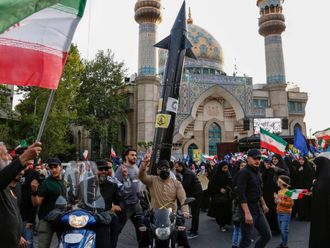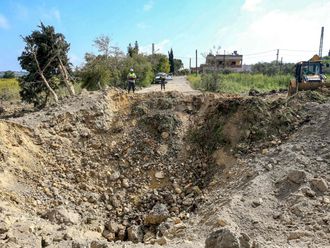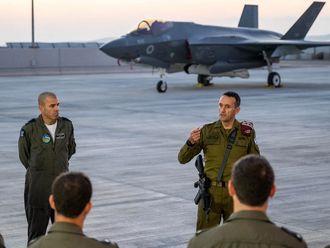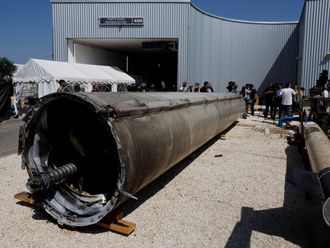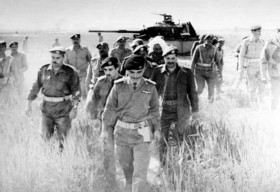
Seattle: On May 1, the Palestinian group Hamas issued a new charter. It is titled “A Document of General Principles and Policies.”
The movement, founded shortly after the launch of the First Palestinian Uprising, or Intifada, in 1987 has been under immense pressure to restate its position in a way that is consistent with the so-called international community’s standards on the ‘Palestinian-Israeli conflict.’
The Washington-led consensus on Palestine perceives no other solution to the ‘conflict’ but the ‘two-state solution’; it deems armed resistance as a form of terrorism; and it sees the ‘Right of Return’ for Palestinian refugees as impractical.
Hamas’ new charter is a precarious attempt at locating that fine balance between its original values and the new expectations. After 10 years of siege, boycott and Israeli wars on Gaza, Hamas is desperate for a lifeline.
What Hamas is experiencing is, in fact, a replay of another historical episode. Starting in the late 1970s, attempts at co-opting Fatah were afoot. The group, secular but with religious roots, was founded on the principles of armed struggle. Its early leaders hoped to model their military tactics after the Algerian resistance against French colonialism.
But Fatah, which rules limited areas in the occupied West Bank, governs today by Israeli mandate. It seems strange that today’s Fatah is rooted in a revolutionary past, within a discourse that is saturated with nationalistic fever.
To witness Hamas moving in the same direction is particularly telling. It appears that the dominant discourse, which has been formulated mostly following the Arab defeat in the 1967 war, persists; anyone who dares operate outsides the acceptable paradigm is to be ostracised, boycotted and forced to change.
New reality
The 1967 war imposed a new reality, not only on the ground, but on the political and intellectual discourses pertaining to Palestine, Israel and the Arabs.
In fact, there was a particular point in history which one can define as the very juncture that ushered in that very change: The 1967 Arab League Summit in Khartoum. Then, the Arabs were forced to articulate a new language.
A few months before the summit, Arabs seemed sure of military victory against Israel. Fiery speeches by Arab leaders had assured the masses that the war would lead to the vanquishing of Israel, ending its aggressions and taking Palestinians back to their towns and villages, from which they were uprooted in 1948.
But things did not go as planned, thanks to Arab unpreparedness and the full scale American-European military and intelligence support of Israel.
Within days, Israel had occupied more than three times more territory than it did in 1948.
So much had abruptly changed during those short, but painful days of war; old legends died and new myths were born.
And because Israel’s victory was complete, it alone had the opportunity to produce new narratives in their entirety, leaving little room for the retreating Arab armies or cowering regimes to define much, save the extent of the humiliation and the magnitude of the infamy.
Egyptian President Jamal Abdul Nasser, who led the Arab war efforts resigned with a heart-wrenching farewell message that reduced the multitudes of poor, once hopeful, Arabs to tears and pushed them to further despair.
The backbone of Pan-Arab nationalism, centred in Cairo, suddenly crumbled.
Egypt emerged from the war bloodied and dishonoured, with a much more limited vision of nationalism.
The challenge was no longer unifying the Arabs around the idea of fighting imperialism and recovering historic Palestine; Egypt was self-absorbed in the task of recapturing its own occupied territories.
In Israel, and around the world, Jewish nationalism took on a new meaning. Israel’s ‘Invincible Army’ was born, and even cynical Jews began to view Israel differently, a victorious state, maybe once an impulsive colonial gambit, but now a regional, if not international, force to be reckoned with.
Palestinian refugees who dreamed of returning to pre-1948 Palestine were facing a momentous ‘setback’, a new ‘Nakba’, indeed, for the refugee problem was now exacerbated and compounded by the war and the creation of 400,000 new refugees.
Israeli bulldozers promptly moved into many parts of the newly conquered Palestinian territories — as they did in other occupied Arab lands — demolishing historic realities, and constructing new ones, an endeavour that continues to this day.
New discourse
While the main Palestinian faction, Fatah, was gearing up to take its place in the front lines, launching its own guerrilla warfare, the Arab discourse began changing as well. That retreat in language continues to the present time.
But it all started in Khartoum.
The temporary Arab unity during the war began to crack. That division was highlighted most starkly in the August 1967 Khartoum Summit, where Arab leaders clashed over priorities and definitions: Should Israel’s territorial gains redefine the status quo ante? Should Arabs focus on returning to a pre-1967 situation or that of pre-1948?
Although the Arabs issued their three famous “Three No’s” — no to recognition of Israel, no negotiations and no peace — a new reality had already emerged and some Arabs seemed unready or, perhaps, unwilling to challenge that reality.
The response to the war was not promising internationally, either.
The United Nations Security Council adopted Resolution 242, on November 22, 1967, reflecting the wish of US President Lyndon B. Johnson Administration’s wish to capitalise on the new status quo: Israeli withdrawal “from occupied territories” in exchange for normalisation with Israel.
The new language of the immediate post-1967 period alarmed Palestinians who realised that any future political settlement was likely to ignore the situation that existed before the war, and would only attempt to remedy current grievances.
The rest is history, and a painful one.
Israel entrenched its occupation; built hundreds of illegal colonies and is yet to implement a single UN resolution pertaining to the occupation, or previous violations. The Arabs, since then, have never treated Palestine as a top priority, even their language becoming watered down, bereft of any substance or call to action.
50 years after the Israeli occupation, Israel celebrates its so-called ‘liberation’ of Jerusalem, redeeming of ‘Judea and Samaria’, while Arabs, bashfully speak of conditioned normalisation with Israel.
— Dr. Ramzy Baroud has been writing about the Middle East for over 20 years. He is an internationally-syndicated columnist, a media consultant, an author of several books and the founder of PalestineChronicle.com. His books include “Searching Jenin”, “The Second Palestinian Intifada” and his latest “My Father Was a Freedom Fighter: Gaza’s Untold Story”. His website is www.ramzybaroud.net.


